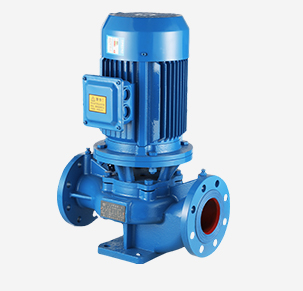Khmer
- Afrikaans
- Albanian
- Amharic
- Arabic
- Armenian
- Azerbaijani
- Basque
- Belarusian
- Bengali
- Bosnian
- Bulgarian
- Catalan
- Cebuano
- Corsican
- Croatian
- Czech
- Danish
- Dutch
- English
- Esperanto
- Estonian
- Finnish
- French
- Frisian
- Galician
- Georgian
- German
- Greek
- Gujarati
- Haitian Creole
- hausa
- hawaiian
- Hebrew
- Hindi
- Miao
- Hungarian
- Icelandic
- igbo
- Indonesian
- irish
- Italian
- Japanese
- Javanese
- Kannada
- kazakh
- Khmer
- Rwandese
- Korean
- Kurdish
- Kyrgyz
- Lao
- Latin
- Latvian
- Lithuanian
- Luxembourgish
- Macedonian
- Malgashi
- Malay
- Malayalam
- Maltese
- Maori
- Marathi
- Mongolian
- Myanmar
- Nepali
- Norwegian
- Norwegian
- Occitan
- Pashto
- Persian
- Polish
- Portuguese
- Punjabi
- Romanian
- Russian
- Samoan
- Scottish Gaelic
- Serbian
- Sesotho
- Shona
- Sindhi
- Sinhala
- Slovak
- Slovenian
- Somali
- Spanish
- Sundanese
- Swahili
- Swedish
- Tagalog
- Tajik
- Tamil
- Tatar
- Telugu
- Thai
- Turkish
- Turkmen
- Ukrainian
- Urdu
- Uighur
- Uzbek
- Vietnamese
- Welsh
- Bantu
- Yiddish
- Yoruba
- Zulu
Telephone: +86 13120555503
Email: frank@cypump.com
វិច្ឆិកា . 23, 2024 22:56 Back to list
slurry pumping services
Understanding Slurry Pumping Services A Comprehensive Overview
In various industrial applications, the efficient handling of slurry— a mixture of solid particles and liquid— is critical for operational success. Slurry pumping services play a pivotal role in sectors such as mining, construction, wastewater treatment, and even food processing. This article delves into the significance, types, and considerations involved in slurry pumping services, providing a holistic understanding of their functionality and importance.
What is Slurry?
Slurry can be defined as a thick mixture composed of solids suspended in a liquid. Common examples include tailings in mining, cement in construction, and sludge in wastewater treatment. The properties of a slurry, including its viscosity, density, and chemical composition, can significantly affect how it needs to be pumped and managed. Therefore, selecting the right pumping solution is crucial to ensure smooth operations and minimize downtime.
The Importance of Slurry Pumping Services
Slurry pumping services are essential for several reasons
1. Efficiency and Productivity Efficient slurry handling is vital to keeping industrial processes running smoothly. Pumps designed specifically for slurry can handle thicker mixtures without losing performance, ensuring operations are not hindered by delays.
2. Cost-Effectiveness Proper slurry management can lead to significant cost savings. By utilizing specialized slurry pumps, companies can reduce maintenance costs associated with wear and tear, as these pumps are tailored to handle abrasive and corrosive materials effectively.
3. Environmental Considerations Effective slurry pumping is crucial in reducing the environmental impact of operations, particularly in mining and wastewater treatment. By minimizing leaks and spills, slurry pumping services help companies comply with environmental regulations and promote sustainable practices.
4. Versatility Slurry pumping services can be adapted for various applications and industries. From transporting coal and sludge to handling chemical mixtures, these services can cater to diverse needs and requirements.
Types of Slurry Pumps
There are several types of slurry pumps available, each designed for specific applications and conditions
slurry pumping services

- Centrifugal Slurry Pumps These pumps utilize centrifugal force to move slurry through a pipeline. They are ideal for transporting large volumes of slurry over long distances, making them suitable for mining and mineral processing applications.
- Positive Displacement Pumps These pumps operate differently from centrifugal pumps and are particularly effective for higher viscosity slurries. Positive displacement pumps provide consistent flow regardless of changes in pressure, making them ideal for applications such as wastewater treatment.
- Submersible Pumps Often used in mining and construction, submersible pumps are designed to operate while submerged in the slurry. They are effective for dewatering applications and transporting sludge from pits or trenches.
Key Considerations in Slurry Pumping Services
When selecting slurry pumping services, several factors must be considered
1. Type of Slurry Understanding the characteristics of the slurry—including its viscosity, density, and particle size—will help in choosing the most suitable pump type.
2. Distance and Elevation The distance the slurry needs to be pumped and any elevation changes can significantly affect pump selection. Pumps with higher pressure ratings may be required for longer distances or vertical lifts.
3. Material Compatibility Since slurries can be abrasive or corrosive, the materials used in the construction of the pump are critical. Selecting pumps made from durable materials will enhance longevity and reduce maintenance needs.
4. Maintenance Requirements Regular maintenance is essential for ensuring the reliability and performance of slurry pumps. Understanding the maintenance demands of different pumps can lead to better operational planning.
Conclusion
Slurry pumping services are indispensable in various industries, facilitating the efficient and effective handling of slurry mixtures. By understanding the types of pumps available and the considerations for selecting the right service, companies can enhance productivity, reduce costs, and uphold environmental standards. Investing in quality slurry pumping services not only supports operational goals but also contributes to sustainable industrial practices.
-
Custom Drilling Mud and Slurry Pump Supplier - High Efficiency, Tailored Solutions
NewsJun.10,2025
-
Supply Vertical Submersible Sewage Pump High-Efficiency WQ/QW Pumps Supplier
NewsJun.10,2025
-
Premium Sewage Ejection System & Pumps Efficient Waste Removal
NewsJun.09,2025
-
Premium Wholesale Slurry Pump Impellers Durable & Efficient Slurry Handling
NewsJun.09,2025
-
Top Sewage Pump Companies Durable Industrial Solutions for Efficiency
NewsJun.09,2025
-
Heavy Duty Slurry Pumps - OEM High Performance & Bulk Wholesale
NewsJun.09,2025










